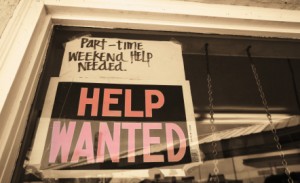Why Borrowing for College in a Recession Is a Bad Idea
Once upon a time, there was a belief that there was such a thing as a good loan with the general consensus being that the two most common ‘good’ forms of borrowing were home and college loans.
Then came the recent economic downturn and the housing crisis. All of a sudden, many homeowners found themselves owing more on their homes then their houses were worth. That development now has many folks realizing that borrowing funds for a home may not always be a good idea.
 In addition to the housing meltdown, the economic crisis has taken a toll on employment opportunities. Those graduating from college this spring are about to enter what has been dubbed the worst job market in years.
In addition to the housing meltdown, the economic crisis has taken a toll on employment opportunities. Those graduating from college this spring are about to enter what has been dubbed the worst job market in years.
With limited job prospects, large numbers of graduating students are being forced to take jobs that do not require a college diploma. If you are one of the students who borrowed significant sums of money only to be forced to take a job waiting tables or bar tending, you now have begun wondering why borrowing for college was ever seen as a ‘good’ idea.
College Grads Seeking Work
According to the Center for Labor Marketing Studies at Northeastern University, the percentage of graduates age 25 and under with a BA degree working in a job requiring a college degree has now dropped below 50 (as of 2009). Therefore, if you are graduating this spring, you face the distinct possibility (a one in two chance) that you will have to enter the work force by taking a job that does not require a bachelor’s degree. Such a development also means that one out of every two graduates cannot expect to earn a salary commensurate with their original career aspiration.
If you are a girl, the survey indicates that you have a slightly better chance to secure a job requiring a college degree. For women 25 and under, 55% (as compared to 49% for men) are currently working in a job that at least requires a college degree.
Worse yet is the data for young adults of Hispanic or African-American descent. For Hispanic males, just 40% of those with a degree are working in a job that requires a diploma. For black males, the number is a paltry 35%.
Loans Due and No Funds to Pay Them
While these percentages represent some of the worst numbers in the past 20 years, the current belief is that the downward trend will continue for the foreseeable future. Given the data, those pursuing a college diploma need to carefully reassess their aspirations. In particular, those thinking about borrowing money to pursue a degree need to carefully take stock of the current job environment.
Data clearly indicates that college graduates who take jobs below their education level will earn less in their initial work years. In fact, it can take seven to nine years to match the earnings of graduates who were able to land career-track employment upon graduation.
When one combines such data with other troubling numbers, that two-thirds of college students are graduating with student loans and that 25% of those who borrow end up owing more than $30,500, the results are startling. That is why 40 percent of seniors surveyed by NACE said they expect to need financial help from their parents after college.
 The result is that students in this economic climate who borrowed even modest amounts of money have additional pressures upon them, the need to pay college loans. For that reason, graduates often find themselves taking any job that is offered just so as to begin the process of paying down those loans.
The result is that students in this economic climate who borrowed even modest amounts of money have additional pressures upon them, the need to pay college loans. For that reason, graduates often find themselves taking any job that is offered just so as to begin the process of paying down those loans.
Even when employment options are available, those who borrowed for school are driven to select the job that pays the most. Students with significant debt generally continue to choose options based on what a job pays rather than pursuing the original career that inspired them to attend college in the first place. Significant college debt loads also lead to the potential delay in starting a family and/or buying a house.
When it comes to borrowing for college, the standard rule at one time was not to borrow more than your projected starting salary. Once upon a time, students could roughly gauge just what that starting salary would be.
Given the recent downturn and the difficulty finding work in your chosen field, such projections are no longer valid. In fact, given today’s economic climate, your starting salary will likely be far lower than those original projections for the foreseeable future.
That means that loans of any size will prove extremely challenging to pay off. Ultimately, borrowing money for college during an economic downturns appears to be a very bad idea.


Maybe this is true, but if you are faced with the choice of borrowing even more for college to attend a more prestigious college than the one you went to for your undergrad degree, or starve and live in your car for the rest of the foreseeable future, with states cutting aid to battered women and displaced homemakers right and left and every state you go to feeling free to discriminate in the hiring of anyone in debt from the previous student loans so that you CAN’T GET A JOB WITH THE ONE DEGREE YOU ALREADY HAVE – this advice is moot. If you NEED an advanced degree to get any job at all in your field and living off student loans is the only way to pay rent and eat, then forget this and borrow anyway. It’s better than starving or winding up staying with your family in an abusive situation – in a state that has no domestic violence shelters, to boot.